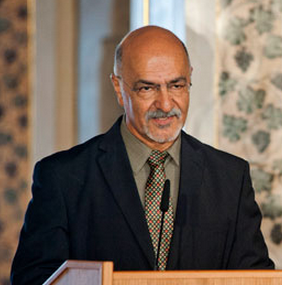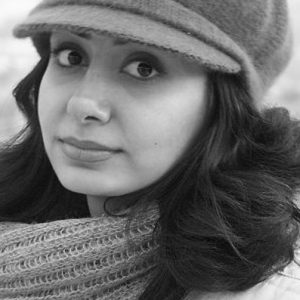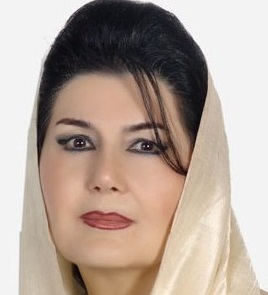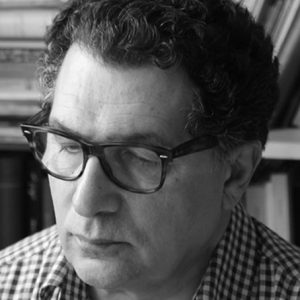Description
Invitation by the Centre Dürrenmatt Neuchâtel
Mahmoud Hosseini Zad in the discussion circle in the Centre Dürrenmatt Neuchâtel
In April 2015, the Centre Dürrenmatt Neuchâtel organized a reading and a discussion circle with Mahmoud Hosseini Zad as part of the Printemps culturel. He spoke about the Dürrenmatt’s popularity in Iran, his own activities as a translator and he read from his translations. He said about the Dürrenmatt’s works in an interview with Schweizer Radio und Fernsehen:
Dürrenmatt is really famous and popular as a pessimist philosopher, who has a ironical bitter look to life…the government of Iran has a talent to interpret everything in his own way. In Dürrenmatt, it sees a critic of western capitalism, especially when he writes about the atomic bomb. Dürrenmatt criticize the West. The government and its censorship agency consider Dürrenmatt’s works as a criticism of the west, as a criticism of capitalism…. These wicked and fighting the wicked. These are Dürrenmatt’s themes. Humans and history and the philosophy. These are in the Dürrenmatt’s works, but we iranians are mostly fascinated by the Dürrenmatt’s philosophical aspect. Iranians love philosophy
— Mahmoud Hosseini Zad,
Hosseini Zad said about the censorship in Iran:
The limits of censorship are not clear in Iran. We have unfortunately censorship agency or control agency. They give us no catalogs or lists at all about what we as translators are allowed and what we are not allowed. they have themselves no control on these controls… When you bring a book to a control agency, you don’t know, whether it will be allowed or will not be allowed to be published. For example the words about sexuality or eroticism. Maybe it seems funny, but these words are in the first priority of censorship, then the political words are in the second priority. After that on the third place come the words about alcohol drinks.
— Mahmoud Hosseini Zad,
He said about the cultural policy changes after Ahmadinejad:
There are already movements. A simple example is that the publisher of my translations in the Ahmadinejad’s regime had 17 totally forbidden works. These works didn’t receive any publish permissions but nowadays there are some freedom and hope, but there is also a gap and we hope it will be removed soon.
— Mahmoud Hosseini Zad,
Translations
Hermann, Judith: Aller Liebe Anfang, Novel, translation: Avval-e Asheghi, Tehran, 2015
Wustmann, Gerrit: Grüngewandt, poems in two languages, translation: Sabzpush, Bremen, 2014
Widmer, Urs: Herr Adamson, translation: Agha ye Adamson, 2014
Schulze, Ingo: Handy, translation: Mobile, 2014
Hermann, Judith; Özdamar, Emine Sevgi; Schlink, Bernhard; Schulze, Ingo; Stamm, Peter: short stories from various works, translation: Asseman-e khis (The Wet Sky), Tehran, 2012
Hermann, Judith: Alice, translation: Alice, Tehran, 2009
Krösinger, Hans Werner: Coming Home, translation: Bazgasht be vatan, Tehran, 2009
Stamm, Peter: Agnes, translation: Agnes, Tehran, 2009
Dürrenmatt, Friedrich: Das Versprechen, translation: Ghol, Tehran, 2008
Timm, Uwe: Am Beispiel meines Bruders, translation: Massalan baradaram, Tehran, 2008
Hermann, Judith, short stories from: Sommerhaus später and Nichts als Gespenster, translation: In souy-e roudkhane Oder (This Side of the Oder), Tehran, 2007
Dürrenmatt, Friedrich: Der Richter und sein Henker, translation: Ghazi o jalladash, Tehran, 1991, revised edition 2006
Dürrenmatt, Friedrich: Der Verdacht, translation: Sou-e zan, Tehran, 2006
Berg, Sibylle; Franck, Julia; Hermann, Judith; Schulze, Ingo: short stories from various works by the writers, translation: Gozaran e rouz (Spending the Day), Tehran, 2005
Böll, Heinrich; Handke, Peter; Kafka, Franz; Kant, Hermann; Mann, Thomas; Meckel, Christoph et all, short stories, translation: Maghbaredar o marg (Der Tod und der Gruftwächter), Tehran, 2005
Lange, Hartmut: Italienische Novellen, translation: Hemayat az hitsh, Tehran, 2005
Ostermaier, Albert: Erreger, translation: Virus, Tehran, 2005
Brecht, Bertolt: Baal, translation: Baal, Tehran, 2001
Brecht, Bertolt: Im Dickicht der Städte, translation: Dar jangal-e shahr, Tehran, 2001
Brecht, Bertolt: Trommeln in der Nacht, translation: Seday-e tabl dar shab, Tehran, 2001
Brecht, Bertolt: Einakter, translation: Tak pardei ha, Tehran, 1979
Gorky, Maxim: Über Kinderliteratur. Aufsätze und Äußerungen, translation: Darbare-ye Adabiyat-e Kudakan, Tehran, 1978
Own works
Sarash ra gozasht ruy-e Felez-e sard – az koshtan o raftan (He put his head on the cold metal – from killing and abandoning) – short stories, Tehran, 2015
Asseman, kipp-e abr (The Sky, Full of Clouds) – short stories, Tehran, 2013
In barf key amade… (When Did This Snow Fall …?) – short stories, Tehran, 2011
Siahi-ye chasbnak-e shab (The Leaden Darkness of Night) – short stories, Tehran, 2005
Tagarg amad emsal bar san-e marg (This Year the Hail Came Like Death) – play, Tehran, 1997
Nehade sar gharibane be divar (Like a Stranger She Leans Her Head on the Wall) – play, Tehran, 1996
Buy-e chasbande be in dast-e kuchak (The Odour Adhering to This Small Hand) – novel, Tehran
Awards
2013: On 28 August, Hosseini Zad received the Goethe Medal for his services and commitment as a cultural mediator par excellence in literature, theater and film.
2013: In a survey among the Iranian authors und critics by the Iranian cultural magazine Tajrobeh, The Sky, Full of Clouds was chosen as the best book of the year – in the category of story.
2012: In a survey among the Iranian authors und critics by the Iranian cultural magazine Tajrobeh, The Wet Sky was chosen as the best book of the year – in the category of translated stories.
2012: The short stories When Did This Snow Fall …? was awarded the Haft Eghlim literature prize.
2010: The translation of Judith Hermanns book Alice was awarded the literature prize Es war einmal as the best translation of the year.





